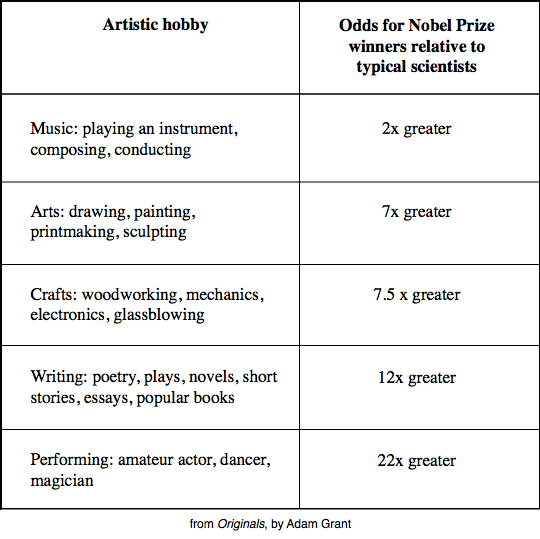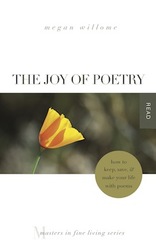Photo by Mo. Creative Commons, via Flickr.
I love National Poetry Month and will always be among the first to promote it and participate in it. The extended holiday raises awareness, spurs creative thinking, and draws communities together for a time--just as holidays of all kinds are meant to do.
But, in the matter of poetry, I'm not satisfied to let it begin and end in April. There is simply too much need for poetry during the other eleven months of the year. What I really want is poetry for life--a constancy, if only low-key, that brings insight to ordinary people as they go about their regular lives, year after year.
5 Ways to Bring Poetry to Life
When considering how to facilitate poetry for life, I find it helpful to think of the main arenas in which we live and move--the classroom, the boardroom, the home (and all its rooms), the byways, and the public squares.
1. In the classroom, every month can be the cruelest month for poetry, when we take the approach of beating poetry with a hose. As a teacher myself, I understand the complex task of trying to balance instruction and inspiration. Lean too hard on instruction and you put students at risk of boredom, banality, even homicide (no kidding). Lean too hard on inspiration without revelation and you risk shutting students out from the secrets of "how things work." So, I get it.
Still, I hear too many stories of the first approach (instruction, instruction, instruction) and how it cultivates a lamentable poetry hatred. Furthermore, the poetry being written by those who've gone through instruction-based systems is... well, I don't wish to be unkind. My advice--because I've seen the strides that can be made--is to swing the pendulum towards inspiration. For this, I recommend simply reading great narrative poetry aloud at least several times weekly, without analysis. And, for those moments when we are ready to reveal the secrets of "how poetry works," try letting Tania Runyan and Billy Collins guide us through inviting approaches in How to Read a Poem and How to Write a Poem.
2. A few years ago Harvard Business Review declared the benefits of poetry for professionals. I can't see that much has been made of it, except perhaps through formal celebrations like Poetry at Work Day. However, in some of the latest influential business titles like The Geography of Genius, The Best Place to Work, and Originals, the benefits of poetry and other types of literature is being recognized for its relationship to higher creativity and achievement.
Originals, by Adam Grant, even has a handy little chart that features the increased odds of a scientist winning a Nobel Prize, based on his or her engagement with everything from playing the piano to writing poetry. Similarly, "People who started businesses and contributed patent applications were more likely than their peers to have leisure time hobbies that involved drawing, painting, architecture, sculpture, and literature. (p.47, Grant)
Where to begin? Try reading Poetry at Work. Consider creating literature lunches for yourself or your employees. (What's a literature lunch? I'm waiting for you to create it and tell the world.) Some companies even release book lists, to indicate that reading is a company value. This year's lists from several Wall Street firms included a handful of fiction titles. Why not add some award-winning poetry? Or a memoir that shows how to keep, save & make your life with poems?
3. Poetry at home would not be so hard to achieve if we linked it to some standard rituals. I love what one mother does at teatime, which you can read about in Poetry and Tea With the Boys. Or you could try this poet's strategies to read more poetry. How about choosing a poetry title for your next book club? You could choose by theme or form--say, a little love from the Ozarks (and bring along some research into the uniqueness of the region); or perhaps some fairy-tale-like verse as in Why the House Is Made of Gingerbread. In a twist on poetry-in-the-home, there's this inspiring program for those with dementia in assisted living settings: Mind's Eye Poetry. You could volunteer to start such a program at a center in your own community.
4.There is a minor movement afoot to bring poetry to the byways by posting it on buses and subways. But many of us who travel by car, train, and even plane have yet to experience poetry as part of transport. Perhaps we could sport a few Basho bumper stickers, Rumi on the rails, or Shakespeare in the skies?
5. It has been quipped that what a culture values it promotes. But I would submit that, based on the mere-exposure effect, things can also go the other way: what a culture promotes is what we can come to value. On this count, those who hold the strings to promotion in the public squares--from downtowns to the Internet--must ask themselves what their role can be. If we are interested in quality-of-life, not just crude survival, we will take it upon ourselves to artfully contribute to our culture. Businesses in Charlotte are doing just that with the wall poems of Charlotte project. The Huffington Post is hosting this article and many more on art and books. There are newer holidays like Random Acts of Poetry Day. Public libraries, local papers and businesses, town playgrounds, colleges and schools, even Google and Facebook could play a part in posting poetry in the public square. Such a public focus could give us a common language of compassion, creativity, and beauty. It could even take a dream and make it a reality. I believe that is possible.



